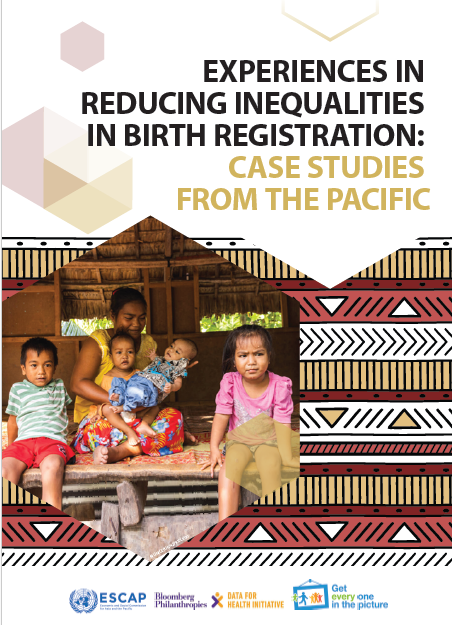Second Ministerial Conference
The Second Ministerial Conference on Civil Registration and Vital Statistics in Asia and the Pacific took place from 16 to 19 November 2021. A core description of the topics of the conference can be found here.
|
The CRVS community in Asia and the Pacific has reflected on where it stands at the midpoint of the CRVS Decade (2015-2024) during the Second Ministerial Conference. Following this celebration of progress, many of our partners and member countries are leading actions to fill the remaining gaps. To learn more about CRVS in Asia and the Pacific, please subscribe to our newsletter, which offers a monthly panorama of CRVS actions throughout the region Previous editions can be found here. |
The Second Ministerial Conference on Civil Registration and Vital Statistics in Asia and the Pacific took place from 16 to 19 November 2021. A core description of the topics of the conference can be found here.
CRVS Insight brings its readers the most relevant CRVS-related news from around Asia-Pacific. CRVS Insight also highlights upcoming events like conferences and webinars, as well as brings its readers the newest resources for CRVS stakeholders, including training materials and research related to CRVS.

The Pacific Community (SPC) in collaboration with The Australian Bureau of Statistics (ABS) and the Economic and Social Commission for Asia and the Pacific (ESCAP) are organizing a series of workshops in Kiribati to build capacity in medical certification of cause of death and the production of vital statistics from 10-13 September 2024. These workshops will support the finalization of the Kiribati vital statistics report, capacity strengthening in medical certification of cause of death, drafting of CRVS action pl
Members and Associate Members of ESCAP are currently undertaking a review of their progress since the inception of the Asia Pacific CRVS Decade in 2014. A questionnaire has been distributed to National CRVS focal points and should be returned to ESCAP by 15 September.
The objective of the three-day workshop is to provide technical support and capacity strengthening to BPS and other relevant national stakeholders to facilitate the implementation of quantitative inequality assessments of CRVS systems using secondary data sources in Indonesia. This will involve building capacity for demographic analysis to undertake inequality assessments in the future as well as dialogue with policy-makers to ensure the results are used for policy formulation.
One-day inception workshop will be organized by BPS in consultation with the national consultant and ESCAP Statistics Division. The workshop will invite all relevant national stakeholders and partner agencies. The BPS will take the lead in providing a briefing on the concept of the project, clarifying the roles and responsibilities of all relevant stakeholders as well as the modus operandi.
ESCAP initiated a project to develop guidelines and technical support for inequality assessments. The information garnered from inequality assessments should be used to inform future research and policy interventions to bridge gaps in registration between different populations. However, once inequalities have been pinpointed, countries have also identified the need for understanding how best to address them. Information and best practices on how to address inequalities in registration of births and deaths is lacking.
